Alberta
How will Alberta’s new Premier deal with Ottawa? These are the approaches of four leading candidates
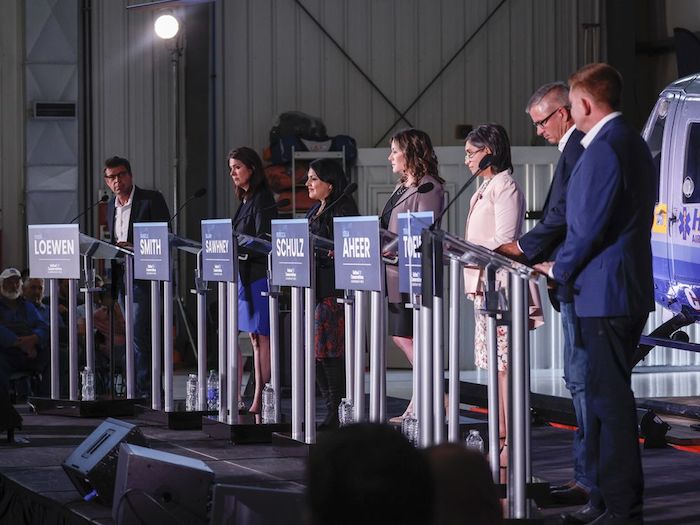
No matter who wins the UCP Leadership race, you can count on a turbulent relationship with Ottawa. Albertans have long had issues with how the Liberal government stifles the critical Oil and Gas industry. Now Alberta’s farmers are finding out what that feels like, as the federal government is introducing measures to reduce the amount of nitrogen fertilizer they use.
To add to the level of animosity between the two governments, a growing number of Alberta UCP supporters are voicing dissatisfaction over Covid restrictions and mandates. This group is active politically, and seems to be rallying behind frontrunner Daniel Smith and likeminded Todd Loewen. The idea is to avoid future restrictions and mandates provincially, and stand up against any federal measures.
It’s no coincidence then, that the leading candidates in the UCP race all have strong platform initiatives to stand up to Ottawa. Here’s what they look like, beginning with Danielle Smith’s “Alberta Sovereignty Act.
Danielle Smith – Alberta Sovereignty Act
It is clear that my proposed Alberta Sovereignty Act has thus far been the central issue of the UCP leadership campaign. Tens of thousands of Albertans have embraced the idea of actually standing up to Ottawa’s attacks against us, rather than usual ineffective letter writing campaigns and complaining.
It’s been both exciting and heartwarming to see hope restored to so many in our Province, and I want them to know how much their faith and confidence in this initiative strengthen my personal resolve to see it through.
Unsurprisingly, many in the media and establishment do not support the Alberta Sovereignty Act and have turned to the tried and tested methods of fearmongering and disinformation to discredit the idea. Unfortunately, some of my fellow UCP candidates may have fallen into their trap.
My hope in releasing this FAQ sheet on the Alberta Sovereignty Act, is that more Albertans and MLAs will take a thoughtful look at this policy, and join the growing majority of Albertans who want to see us stand up to Ottawa, restore our constitutional rights, and take control of our future in this manner.
I am sincerely looking forward to implementing this critically important piece of legislation together.
– Danielle Smith
What is the Alberta Sovereignty Act?
A proposed provincial law that would affirm the authority of the Provincial Legislature to refuse enforcement of any Federal law or policy that violates the jurisdictional rights of Alberta under Sections 92 – 95 of the Constitution or that breaches the Charter Rights of Albertans.
How will it be used?
When the Federal Government institutes a law or policy that appears to violate the constitution or Charter, the Government of Alberta may introduce a Special Motion for a free vote of all MLAs in the Legislature. The Special Motion would include the following:
1. Identification of the Federal law or policy that it deems to be in violation of the Constitution
2. An Outline of the specific harms that violation of the Constitution imposes on the citizens of Alberta
3. Description of the specific actions the Province will take to refuse the enforcement of that Federal law or policy in Alberta
4. A Declaration that by authority of the Alberta Sovereignty Act and notwithstanding the specific Federal law or policy in question, it shall not be enforced by the Provincial Government within Alberta in the manner outlined by the Special Motion
5. Imposition a specific time frame (no more than 24 months) by which the Special Motion will be reviewed in the Legislature
Will a Premier or Governing Party be able to refuse enforcement of any Federal Law or Policy they don’t like?
No, the Alberta Sovereignty Act may not be used unless specifically authorized by way of a free vote of all elected MLAs in the Alberta Legislature, as explained above.
What examples of Federal Laws will the Alberta Sovereignty Act be applied to?
Examples could include:
– Federal mandatory vaccination policies – Charter violation
– Use of Emergencies Act to jail & freeze accounts of peaceful protesters – Charter violation
– Bill C-69 ‘No New Pipelines’ Law – found unconstitutional by Alberta Court of Appeal
– Mandatory cuts to fertilizer use by Alberta Farmers – violation of s.95
– Mandatory emissions and production cuts to Alberta energy projects – violation of s.92A
– Federal gun grabs – violation of s.92(13)
Is the Alberta Sovereignty Act about Separation from Canada?
No, the entire objective of the Alberta Sovereignty Act is to assert Alberta’s Constitutional Rights within Canada to the furthest extent possible by effectively governing itself as a Nation within a Nation, just as Quebec has done for decades and as Saskatchewan is also now considering.
If anything, the restoration of provincial rights and autonomy of every province from the destructive overreach of Ottawa is likely the only viable way for Canada to survive and flourish into the future. Ottawa’s “divide, control and conquer’ policies have Canada on a path of division and disunity. Alberta can and must lead on this issue going forward.
Is the Alberta Sovereignty Act illegal or does it run contrary to the rule of law?
No, just the opposite.
Over the last several years the Federal Government has triggered a constitutional crisis through repeated lawless attacks on provincial constitutional rights and the Charter.
The Trudeau Government has effectively imposed economic sanctions against Alberta (and parts of Saskatchewan and BC) that have resulted in economic chaos.
Hundreds of billions in investment and tax revenues, and hundreds of thousands of jobs, have been lost to these sanctions as investors around the world find it too risky to do business in Alberta’s energy industry. In fact, no new major development of our world class oil sands has been commenced in almost 20 years as a result.
The idea expressed by some UCP leadership candidates that the Alberta Sovereignty Act would “cause chaos” in the markets is naive in the extreme. The “chaos” is already here and has been caused by both Ottawa’s unlawful policies and an utter lack of provincial leadership on effectively pushing back against those attacks.
The fact is the Alberta Sovereignty Act reimposes constitutional rule of law on a lawless Ottawa by reaffirming the critical import of respecting the powers and jurisdiction of the Provinces under the Canadian Constitution.
Brian Jean – Autonomy For Albertans Act
|
I started with policies designed to change how Alberta reacts to the federal government and Canada. I want us to stop being defensive and go on the offensive. We have to stop covering up and we have to take the fight to Canada. The five sets of actions that will protect and enhance Alberta’s Autonomy Within Canada are:
These actions and this approach is very different than how Alberta has traditionally acted. This is very different from what the other leadership candidates are proposing. First this is about acting, about doing something. The “Alberta Sovereignty Act” proposal is purely defensive and reactive. Instead of saying to Canada “we won’t enforce your rules if you come after us,” I am saying that we need to take the initiative.
|
 |
|
My proposals are about taking ACTION and going on the offense. Danielle Smith proposes a purely defensive strategy that surrenders on past fights. Travis Toews has no strategy at all in this area — he wants to continue Jason Kenney’s practice of writing stern and meaningless letters whenever we get stepped on.
When we open the Constitution, we can deal with the issues of: pipelines and right-of-ways, access to tidewater, stopping provinces and the federal government from landlocking provinces, and democratic under-representation. Taking the fight to the rest of Canada is the way to actually get results and reverse the damage.
Passing an unconstitutional “Sovereignty Act” that only kicks in the next time we are punched doesn’t change anything. It will likely encourage Trudeau to hit Alberta harder.
Fighting the efforts of the World Economic Forum to change our society is something Alberta should have been doing all along.
|
 |
|
As is using the courts intelligently including as a way to get expert testimony into the record in important legal debates.
|
 |
|
Fighting back against the insults of Quebec and the federal government should have always been our policy. Instead under Jason Kenney we too often gave away things hoping that other provinces would return the favour. They did not.
|
 |
|
Finally, we should learn from Quebec and have our position in the world recognized by Canada. Alberta is an energy superpower and it should own Canada’s seat at the global table whenever energy issues are discussed.
|
 |
|
||
|
Rebecca Schulz – 100 DAY PROVINCIAL RIGHTS STRATEGY
A Schulz government would immediately start the 100 Day Provincial Rights Action Plan, with clear steps – and a timeline – to fight, negotiate, partner, and strengthen Alberta’s position with Confederation.
“No more letters, no more panels, and no more empty threats – Albertans want action and results when it comes to defending our rights in confederation and seeing our province reach its full potential.” – Rebecca Schulz
Within the first 10 days, a Schulz government will appoint a Deputy Premier and team with the primary focus to act as Alberta’s lead negotiators in strengthening Alberta’s position in Canada.
This will include:
- Presenting the federation with a package of common sense reforms on equalization, fiscal stabilization, and greater provincial control over programs through tax points
- Presenting the federation with a list of federal, provincial overlap in regulations/policy and begin negotiations on disentanglement
- Pursuing an Alberta Pension Plan, Alberta Employment Insurance and an Alberta Revenue Agency
Within the first 50 days, Schulz and the Deputy Premier would present a Provincial Rights
Framework, to identify every legal and constitutional measure possible to stand up against Ottawa’s continued attacks on provincial jurisdiction.
This will include:
- Calling for a Protecting Provincial Rights Summit to bring provinces to the table and identify every measure to stand up for jurisdictional rights against federal interference
- Continuing the fight against the Tanker Ban (C-48) and Trudeau’s No-More Pipelines legislation (C-69), alongside all 10 provinces
- Taking every proactive legal measure possible against Trudeau’s federal emissions and fertilizer caps.
Within the first 100 days, Schulz and the Deputy Premier would present a new Market Access Plan to create political and economic incentives for federal and provincial governments to negotiate with Alberta in good faith for improved trade and market access.
This will include:
- Identifying strategic actions to deter other provinces or levels of government from limiting Alberta’s market access and trade
- Developing criteria for when Alberta will Turn off the Taps through the Preserving Canada’s Economic Prosperity Act.
“You don’t need to spend weeks on the campaign trail to understand how frustrated Albertans are of being pushed around. The emissions and fertilizer caps are just two of the most recent examples of governments interfering with our provincial trade and prosperity. It’s about time Albertans were presented with a real plan to take action.” – Rebecca Schulz

Alberta
Upgrades at Port of Churchill spark ambitions for nation-building Arctic exports

In August 2024, a shipment of zinc concentrate departed from the Port of Churchill — marking the port’s first export of critical minerals in over two decades. Photo courtesy Arctic Gateway Group
From the Canadian Energy Centre
By Will Gibson
‘Churchill presents huge opportunities when it comes to mining, agriculture and energy’
When flooding in northern Manitoba washed out the rail line connecting the Town of Churchill to the rest of the country in May 2017, it cast serious questions about the future of the community of 900 people on the shores of Hudson Bay.
Eight years later, the provincial and federal governments have invested in Churchill as a crucial nation-building corridor opportunity to get resources from the Prairies to markets in Europe, Africa and South America.
Direct links to ocean and rail

Aerial view of the Hudson Bay Railway that connects to the Port of Churchill. Photo courtesy Arctic Gateway Group
The Port of Churchill is unique in North America.
Built in the 1920s for summer shipments of grain, it’s the continent’s only deepwater seaport with direct access to the Arctic Ocean and a direct link to the continental rail network, through the Hudson Bay Railway.
The port has four berths and is capable of handling large vessels. Having spent the past seven years upgrading both the rail line and the port, its owners are ready to expand shipping.
“After investing a lot to improve infrastructure that was neglected for decades, we see the possibilities and opportunities for commodities to come through Churchill whether that is critical minerals, grain, potash or energy,” said Chris Avery, CEO of the Arctic Gateway Group (AGG), a partnership of 29 First Nations and 12 remote northern Manitoba communities that owns the port and rail line.
“We are pleased to be in the conversation for these nation-building projects.”
In May, Canada’s Western premiers called for the Prime Minister’s full support for the development of an economic corridor connecting ports on the northwest coast and Hudson’s Bay, ultimately reaching Grays Bay, Nunavut.
Investments in Port of Churchill upgrades
AGG, which purchased the rail line and port from an American company in 2017, is not alone in the bullish view of Churchill’s future.
In February, Manitoba Premier Wab Kinew announced an investment of $36.4 million over two years in infrastructure projects at the port aimed at growing international trade.
“Churchill presents huge opportunities when it comes to mining, agriculture and energy,” Kinew said in a release.
“These new investments will build up Manitoba’s economic strength and open our province to new trading opportunities.”
In March, the federal government committed $175 million over five years to the project including $125 million to support the rail line and $50 million to develop the port.
“It’s important to point out that investing in Churchill was something that both the Liberal and Conservative parties agreed on during the federal election campaign,” said Avery, a British Columbian who worked in the airline industry for more than two decades before joining AGG.
Reduced travel time
The federal financial support helped AGG upgrade the rail line, repairing the 20 different locations where it was washed out by flooding in 2017.
Improvements included laying more than 1,600 rail cars worth of ballast rock for stabilization and drainage, installing almost 120,000 new railway ties and undertaking major bridge crossing rehabilitations and switch upgrades.
The result has seen travel time by rail reduced by three hours — or about 10 per cent — between The Pas and Churchill.
AGG also built a dedicated storage facility for critical minerals and other commodities at the port, the first new building in several decades.
Those improvements led to a milestone in August 2024, when a shipment of zinc concentrate was shipped from the port to Belgium. It was the first critical minerals shipment from Churchill in more than two decades.
The zinc concentrate was mined at Snow Lake, Manitoba, loaded on rail cars at The Pas and moved to Churchill. It’s a scenario Avery hopes to see repeated with other commodities from the Prairies.
Addressing Arctic challenges
The emergence of new technologies has helped AGG work around the challenges of melting permafrost under the rail line and ice in Hudson Bay, he said.
Real-time ground-penetrating radar and LiDAR data from sensors attached to locomotives can identify potential problems, while regular drone flights scan the track, artificial intelligence mines the data for issues, and GPS provides exact locations for maintenance.
The group has worked with permafrost researchers from the University of Calgary, Université Laval and Royal Military College to better manage the challenge. “Some of these technologies, such as artificial intelligence and LiDAR, weren’t readily available five years ago, let alone two decades,” Avery said.
On the open water, AGG is working with researchers from the University of Manitoba to study sea ice and the change in sea lanes.
“Icebreakers would be a game-changer for our shipping operations and would allow year-round shipping in the short-term,” he said.
“Without icebreakers, the shipping season is currently about four and a half months of the year, from April to early November, but that is going to continue to increase in the coming decades.”
Interest from potential shippers, including energy producers, has grown since last year’s election in the United States, Avery said.
“We’re going to continue to work closely with all levels of government to get Canada’s products to markets around the world. That’s building our nation. That’s why we are excited for the future.”
Alberta
OPEC+ is playing a dangerous game with oil

This article supplied by Troy Media.
OPEC+ is cranking up oil supply into a weak market. It’s tried this strategy before, and it backfired
OPEC+ is once again charging headfirst into a market share war—a strategy that has repeatedly ended in disaster. Despite weak global demand, falling prices and rising output from non-OPEC countries, the cartel has chosen to flood the market. History shows this tactic rarely ends well for
OPEC+ or oil producers worldwide, including Canada.
OPEC+, a group of major oil-exporting countries led by Saudi Arabia and Russia, works together to manage global oil supply and influence prices. Its decisions have far-reaching consequences for the global energy market—including for Canadian oil producers.
Last Saturday, eight leading members of OPEC+ announced, after a virtual meeting, that they would increase production by 548,000 barrels per day starting in August. That is significantly more than the group’s recent additions of 411,000 bpd, and it puts them on track to fully unwind their
previous 2.2 million bpd in cuts a full year ahead of schedule.
It is a bold move, but it comes at a questionable time.
There is little geopolitical premium built into current oil prices, and the global market is already oversupplied. Brent crude futures are down more than six per cent so far this year. Analysts estimate inventories have been climbing by a million barrels per day in 2025 due in part to cooling demand in China and rising output from countries outside OPEC.
S&P Global Commodity Insights forecasts a supply surplus of 1.25 million barrels per day in the second half of the year. Brent crude stood at about US$68 per barrel on Friday, but S&P says it could fall to between US$50 and $60 later this year and into 2026. West Texas Intermediate, the U.S. benchmark, is also at risk of dropping below US$50 per barrel.
Canada is the world’s fourth-largest oil producer, with most of its output coming from Alberta’s oil sands. Though Canadian producers have higher costs than some OPEC+ members, their innovation and access to U.S. markets have made them increasingly competitive.
While the seasonal demand boost might justify a modest increase, OPEC+, especially Saudi Arabia, appears primarily motivated by market share concerns. With U.S. shale and countries like Canada, Kazakhstan and Guyana gaining ground, the cartel is falling back on its old tactic of flooding the market to squeeze out competitors.
Some observers, including Stanley Reed in The New York Times, have suggested that the move may be designed to please U.S. President Donald Trump, who “has made courting Saudi Arabia and regional allies like the United Arab Emirates a priority of his foreign policy.” But even geopolitical gamesmanship has not shielded OPEC+ from the consequences before—and likely will not this time either.
Back in 2014, fed up with the U.S. shale boom, OPEC opened the taps. The goal was to drive prices low enough to force out higher-cost producers. Instead, oil plunged into the US$30 range. According to the World Bank, the 70 per cent drop during that period was one of the three biggest oil crashes since the Second World War and the most prolonged since the supply-driven collapse of 1986. Saudi Arabia’s respected oil minister, Ali Al-Naimi, lost his job in the aftermath.
Then, in April 2020, as the COVID-19 pandemic loomed, OPEC and Russia launched a production war that sent oil prices into freefall, briefly into negative territory. Trump had to broker a ceasefire to rescue the U.S. shale industry, forcing Riyadh and Moscow to pull back. Both sides suffered significant economic damage.
For Canada, especially Alberta, the current fallout could be severe. The province is home to most of the country’s oil sands production. Cheaper global crude undercuts Canadian prices, squeezes royalty revenues, chills investment and puts jobs at risk across Canada. And this comes as governments are already grappling with fiscal pressures.
The oil market does not reward short-term thinking. If OPEC+ continues down this road, history suggests the outcome will be painful for them and the rest of us.
Toronto-based Rashid Husain Syed is a highly regarded analyst specializing in energy and politics, particularly in the Middle East. In addition to his contributions to local and international newspapers, Rashid frequently lends his expertise as a speaker at global conferences. Organizations such as the Department of Energy in Washington and the International Energy Agency in Paris have sought his insights on global energy matters.
Troy Media empowers Canadian community news outlets by providing independent, insightful analysis and commentary. Our mission is to support local media in helping Canadians stay informed and engaged by delivering reliable content that strengthens community connections and deepens understanding across the country
-
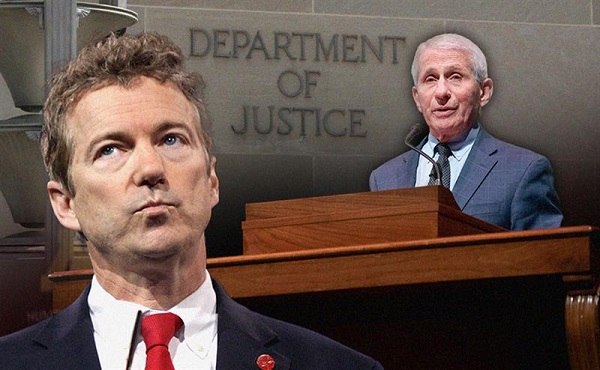
 COVID-192 days ago
COVID-192 days agoSen. Rand Paul: ‘I am officially re-referring Dr. Fauci to the DOJ’
-

 International2 days ago
International2 days agoMatt Walsh slams Trump administration’s move to bury Epstein sex trafficking scandal
-
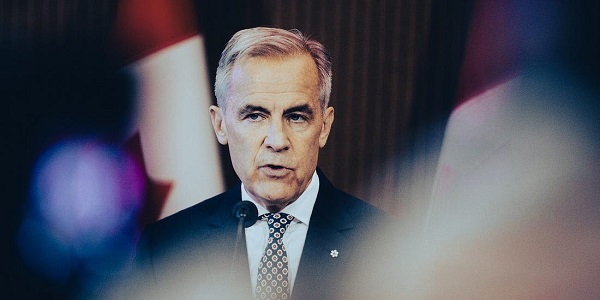
 National2 days ago
National2 days agoDemocracy Watch Blows the Whistle on Carney’s Ethics Sham
-

 Energy1 day ago
Energy1 day agoIs The Carney Government Making Canadian Energy More “Investible”?
-
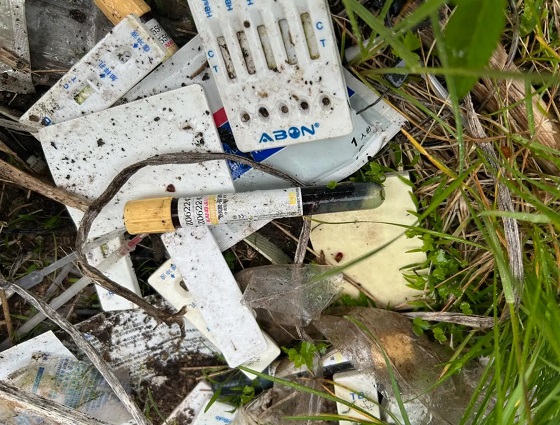
 Immigration1 day ago
Immigration1 day agoUnregulated medical procedures? Price Edward Islanders Want Answers After Finding Biomedical Waste From PRC-Linked Monasteries
-

 Business1 day ago
Business1 day agoDemocracy Watchdog Says PM Carney’s “Ethics Screen” Actually “Hides His Participation” In Conflicted Investments
-
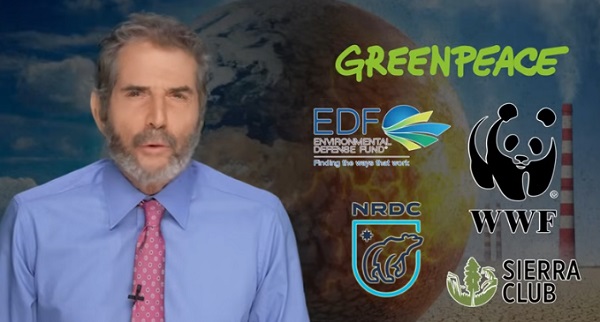
 John Stossel2 days ago
John Stossel2 days agoThe Green Industrial Complex: Power, Panic, and Profits
-
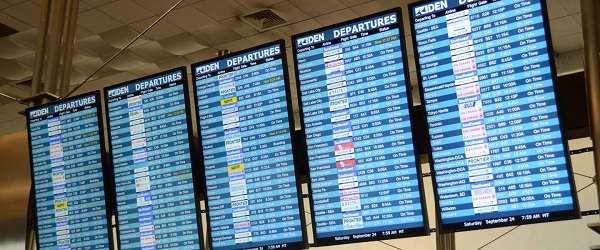
 Business1 day ago
Business1 day agoCompetition Bureau is right—Canada should open up competition in the air










